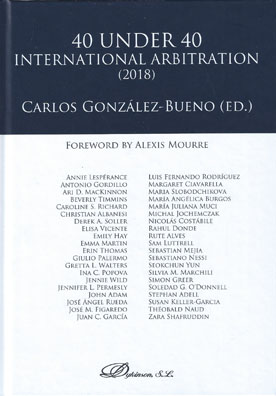
The importance of this book can hardly be overstated. 40 bright and experienced practitioners, below 40 years of age, coming from all continents, almost half of them women, is an almost perfect image of the arbitration world of tomorrow.
Achieving greater gender, generational and regional diversity is fundamental condition for maintaining trust in arbitration as a global system of justice and as a fair and legitimate means of resolving international business disputes with globalization and the rise of emerging markets, in particular in Asia and Africa, arbitral institutions need to reach out to a much broader population of arbitrators of diverse origins and experiences if it wants to meet the needs of the users of arbitration in the decades to come.
This book brings together forty authors who are among the most promising rising stars in international arbitration. The topics elected by the authors go to the fundamentals of arbitration, such as due process, independence and impartiality the role of good faith, and human rights.
The book also addresses in a talented and often innovative way novel questions such as the role of psychology in arbitration, cognitive biases, third-party funding or the way in which technology will transform our profession in the years to come. My only wish is to see further editions of this remarkable book, and to see more authors from Africa and Asia amongst its future authors.
I have no doubt that Carlos González-Bueno will heed this call. We should all be grateful to him for this remarkable initiative, which will greatly contribute to open the door to the new generation of arbitrators.
from the Preface Alexis Mourre President, ICC International Court of Arbitration